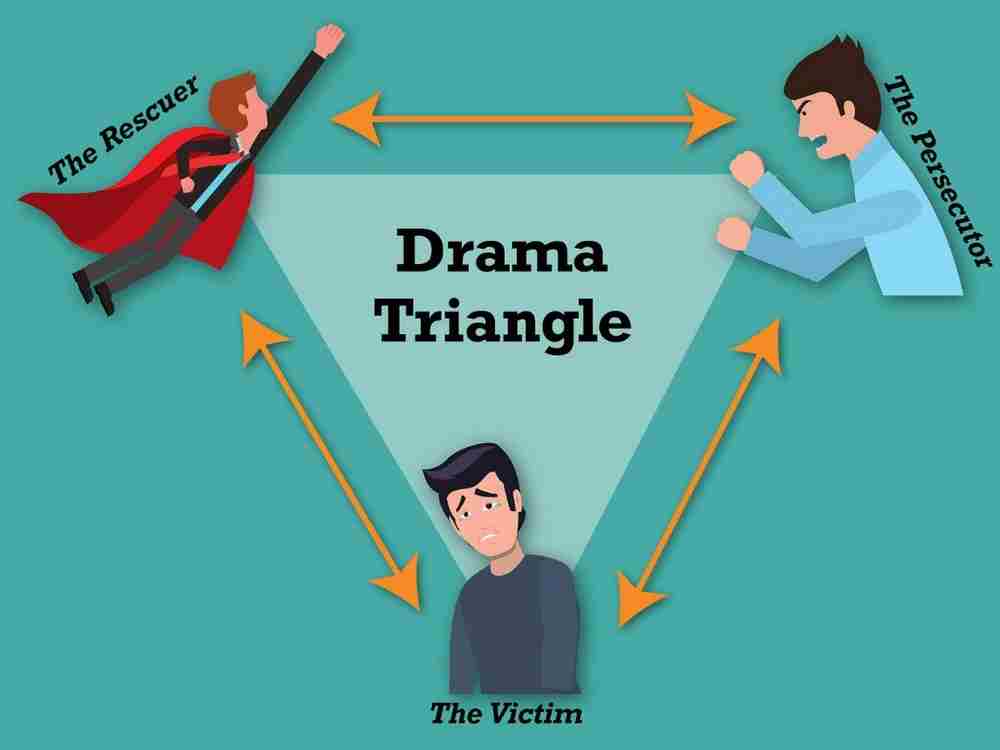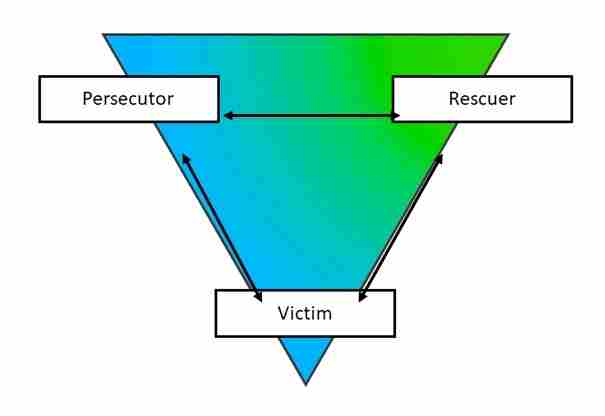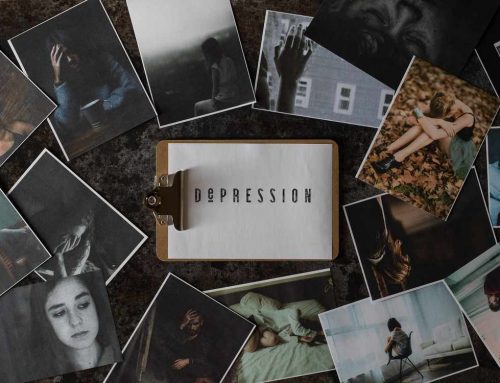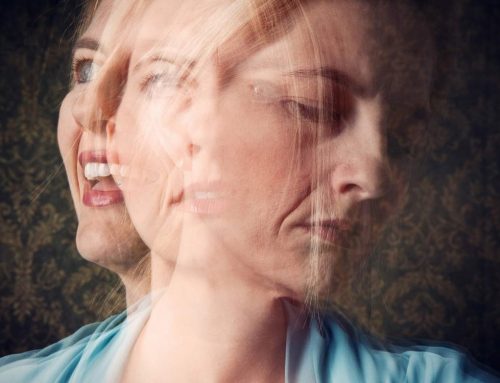Relationships
Breaking the cycle of the
Victim, Rescuer and Persecutor Triangle
Have you ever felt stuck in your relationships? Repeating the same old patterns over and over again?
The Victim-Rescuer-Persecutor (VRP) triangle is a tool that is regularly used in transactional analysis to assist psychotherapy clients with identifying destructive interpersonal relationship patterns.
Psychological Drama Triangle
This psychological drama triangle is difficult to escape on your own.
The power struggles between the victim, the rescuer and the persecutor can lead to a toxic tango between you and others with whom you have interpersonal relationships with and can destroy your ability to form and maintain healthy relationships.
Anyone involved in triangular dynamics ends up in misery and suffering and no one wins!
Break Free
With the help of your therapist, Dr. Leonora de Villiers, you too can learn to break free from the dysfunctional entanglement of the 3 roles that so often keep you entrapped in your relationships.
Once you become aware of how you can spin from one position in die VRP to another, you can learn to resolve the behaviours that keep you from forming and nurturing healthy relationships.
Let’s start by describing each of the 3 VRP roles:
The Victim
The victim in this drama triangle is not intended to represent an actual victim of circumstances, but rather someone that is feeling or acting like a victim.
It doesn’t matter where you start out on the triangle, but being a victim is where you eventually end up, no matter the starting position you were functioning in on the triangle.
Although you might have a dominant role that you identify with within the triangle, once you enter the triangle, you rotate through all the positions in a matter of minutes or even seconds, and this may occur many times a day.
The victim seeks to convince them self and others that they have no power and cannot do anything. Nothing they do will have a positive outcome for them, no matter how hard they try. They focus on the past and get stuck in a downward-spiral of negativity.
The Victim feels oppressed, depressed, helpless, angry, ashamed, confused and rudderless (they have no sense of direction in terms of where they are heading in life). They tend to have an inability to enjoy life or achieve insight into their functional use of the victim role.
Their suffering creates their identity. The victim stance is “I cannot do this…. Why does it always happen to me…?” They need constant care and attention and believe that they cannot care for themselves. They will talk about their bad luck, problems, pain and suffering for hours without finding solutions or taking responsibility for their lives.
The real payoff of the victim role is avoiding real change, not taking risks and acknowledging their true feelings. They try everything they can to escape from their anxiety and will even set-up someone in the role of a persecutor or rescuer to save the day.
The victim’s negative feelings will however sabotage any help that is offered from family or friends and they will keep spiraling without any positive momentum.
The Rescuer
Rescuers see themselves as “helpers” and “caretakers.” They tend to smother, take control and manipulate the people that they believe they are taking care of (victim).
They need someone to rescue (victim) in order to feel needed and important. They always appear to be in control and have all the answers for everything. They never see themselves in a victim position as they have a misguided understanding of what it means to encourage, protect and empower someone.
They love to take care of and direct other people’s lives. This is all an attempt to obtain love, attention and respect from others – their sense of identity!
The rescuer is a classic co-dependent individual, and on the surface appears to be a “hero”. They do not realize that their relationship roles are dysfunctional and that they are the ones that need to rescue themselves from the VRP triangle.
It is a fact that we often treat ourselves as we were treated as children. Rescuers usually grow up in families where their needs for love and acceptance is not acknowledged or sufficiently met. Thus, converting it from needs to dysfunctional traits. They tend to over-care for other people and neglect themselves.
The rescuer wants to “fix everything and everyone”. This role can be quite addictive as it stems from an unconscious need to feel good about oneself, to gain attention, to feel valued, in control and worthwhile. They are generally proud of their “selfless” acts and subconsciously believe that other people will take care of them as well.
This however does not materialize and then leads to disappointment, anger and depression. They fail to see that they themselves are heading straight for the victim role.
The rescuers find it very difficult to see themselves in the victim role, even while they complain about how mistreated they are and how unthankful their “do-gooder-beneficiaries” behaved towards them. They become a martyr in the VRP victim role.
They feel used, betrayed, shocked, and emotionally paralyzed after they have cared so much. The rescuers greatest fear is that they will end up alone and rejected. They scurry to make themselves indispensable in order to avoid abandonment.
The Persecutor
Both victims and rescuers can become persecutors in the VRP triangle. Persecutors vent their resentment, anger, frustration, and upset feelings on other people.
They feel that the negative situations that they are in, are always someone else’s fault and are usually in denial about their blaming tactics.
Persecutors stay locked into the destructive patterns of antagonizing and attacking the source of their frustration.
They feel that they need to protect themselves and that their destructive behaviour is a justifiable means of retaliation in a world that is hard and mean.
Persecutors punish others by dominating, humiliating, shaming, controlling and forcefully attempting to indoctrinate those that irritate them.
In order to resolve these dysfunctional behaviours effectively, the persecutor needs to disengage and walk away form a person or situation in order to take responsibility for their own well-being.
They need to learn to take care of themselves.
The persecutor role in the VRP triangle is shame-based and usually develops as a result of childhood trauma (emotional and/or physical abuse). They suppress their feelings of hurt and pain and they hide behind facades of indignation and uncaring detachment in order to not seem vulnerable. Instead of providing nurturing protection, they use brute force to manipulate and discipline those around them.
Domination becomes their most preferred style of interaction. They believe they are always right and use methods of bullying, lecturing, threatening, belittling, and even sometimes, aggressive acts. They have a need to get even!
The persecutors greatest fear is powerlessness. They need to project their own inadequacy and fear of vulnerability onto a victim. They compensate for their inner feelings of worthlessness and inferiority by creating a sense of superiority and grandiosity around themselves.
It is very difficult for the persecutor to take responsibility for the way they hurt others, because in their minds… others get what they deserve! They view the world as dangerous and are wounded individuals that need to protect themselves.
The VRP cycle looks something like: “I was only trying to help (rescuer), and they turned on me (victim), so I had to defend myself by striking back at them (persecutor).”
For someone stuck in the persecutor role, it can be very scary to get really honest with themselves, because it threatens the way they view themselves. They need to stay angry in order to not get depressed.
In summary, if you want to achieve a breakthrough and achieve self-accountability, you need to own up to the roles that you use in the VRP cycle. This can be very difficult to achieve on your own – as people trapped in the VRP triangle often do not realize that they are stuck in dysfunctional relationship roles.
Speak to Dr. Leonora if you want to take the first step in this breakthrough process and lead a life with healthy and more effective relationships.
If you have any queries, are keen on finding out more information, or are interested in making an appointment to see Dr Leonora de Villiers, please do not hesitate to contact her.
082 497 3765




